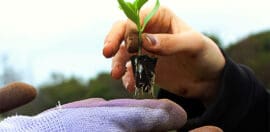COVID-19 set to cause a major giving downturn

22 April 2020 at 5:35 pm
Funding models of many for-purpose organisations could come under significant pressure in the future
The coronavirus pandemic could see giving in Australia fall by almost 20 per cent by the end of next year, new research warns.
A JBWere report, released this week, estimates how Australian philanthropy will be impacted by the “unprecedented combination” of a major economic downturn and a significant global health crisis.
Analysing the giving segments in Australia and the main factors influencing their levels of support, JBWere estimates total giving will fall around 7.1 per cent in 2020 after rising almost 5 per cent in the past two years.
It warns the full effect of the crisis is likely to be felt in 2021, when giving is estimated to fall by a further 11.9 per cent, back to levels not seen since 2012.
Report author John McLeod told Pro Bono News forecasting was hard at the best of times, let alone during a global crisis, meaning the estimated 20 per cent drop in giving was far from set in stone.
But he said the downturn was even more damaging because it reversed a trend of rising giving levels in recent years.
“We would normally expect a 5 or 6 per cent giving rise this year. So a 7 per cent fall is really 12 per cent below where it might be,” McLeod said.
“When we add another 12 per cent drop next year, it means a 20 per cent fall over a period when we’d usually see a 10 per cent rise in giving.”
The report said a confluence of factors meant the funding models of many for-purpose organisations would be under significant pressure in the future.
McLeod believes different cause areas will be affected uniquely. For example, arts and culture organisations will lose money because of event cancellations, while universities will likely lose money if there is a loss of international students.
The report noted the significance of the Victorian government’s willingness to step in during the Good Friday Appeal for the Melbourne Royal Children’s Hospital.
The government decided to provide the balance to match the previous year’s total, after the event was severely curtailed by the COVID-19 crisis.
McLeod said this showed that how charities come out of this crisis will partly depend on their relationships with governments.
“So even though fundraising is down, it might actually be partly supplemented as governments have done for a whole lot of other things,” he said.
“This does mean though that the trend of charities relying on government money could increase even further.”
His advice for charities was to “not waste a crisis”. The report said that volunteering has gradually been moving towards having a smaller proportion of people available and for fewer hours.
McLeod said the crisis offered the opportunity for organisations to move faster towards a “re-engineering of volunteering” that was already underway, by thinking more deeply about how to utilise the skills of volunteers.
Read more: Is coronavirus reshaping volunteering?
He said it provided the chance to rethink a whole range of areas.
“I think it probably makes charities really think about what comes next. What’s our position on this theory of change that we’re part of? Do we need to be doing quite the range of things we were doing before?” he said.
“Are these some things we should do more of? What effect does that have on our donors who supported previous things that we’ve done?
“The messaging that charities give as to why they are altering is really important. But it’s really a great opportunity for change.”








The report is a good read, I hope it is pessimistic and the key message “Don’t waste a crisis” is spot on.
I’m worried we may have a post-crisis economic woe driven slump in giving but for many organisations, they are in a position to make some choices right now that will impact them.
I’m lucky because I work with charities worldwide – I work with charities in Italy, US, NZ and others, as well as Australia. I’ve noticed something about donations from the public that doesn’t vary by country, how bad COVID19 is for them, or what level of government response.
There seem to be two types of fundraising organisations…
1) The most vulnerable didn’t have a diverse portfolio of fundraising, with in monthly gift, major donor and /or bequest programs. These charities were reliant upon charity shops, events, street activities etc. As per the extraordinary example in the JB Were report.
2) Those with diverse portfolios and solid monthly giving programs, such as WWF, Plan International, Cancer Council NSW.
Then two types of reactions.
1) Those that seized the moment, ran emergency campaigns, innovated with press ads, online, phone, with very strong, honest messaging. All of these are seeing record responses to those channels, which, in most cases has been enough to push them through. Bloomhill Cancer Centre in Sunshine Coast, Baptist World Aid, Plan International.
2) Those that were slow, reluctant or still haven’t actually given their supporters the opportunity to help (those same supporters have helped others!)
Organisations that got on with emergency campaigns have seen uplifts from major donors, new donors coming forth (with acquisition ROIs > 1.0).
Reflecting back to the best data set of 2008 US charity giving, we are likely to see a slump. Whilst not a great time for charities as a whole, it was also a period of unprecedented growth for some like Kiva.org and Charity:Water.
Here, 20% will be the low end for those that don’t step up, communicate frequently with supporters, broaden their portfolio and implement current best practice around donor care.
Even if there is a slump, decisions made internally will have a huge impact on the future of Australian NFPs.
Does anyone have a link to the actual report they could include here? thanks!
Hi Joel, Thanks for your comment. You can find the report and corresponding webinar here: https://www.jbwere.com.au/for-purpose-organisations/philanthropic-services/thought-leadership